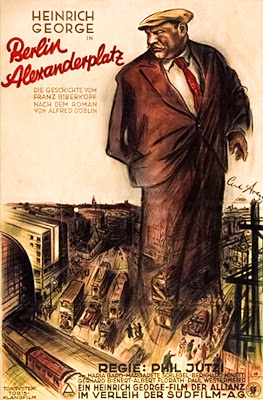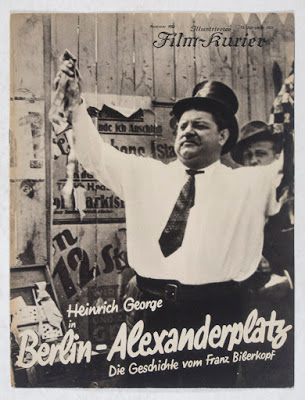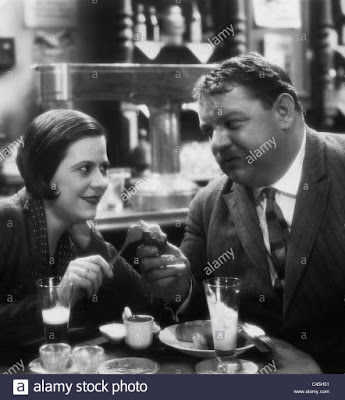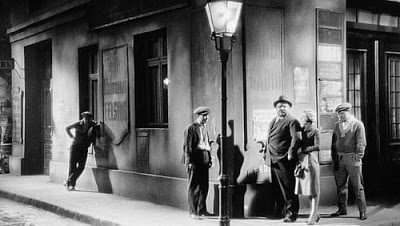Berlin Alexanderplatz

Director: Phil Jutzi
Year: 1931
Rating: 6.0
Country: Germany
This film is based on a novel of the same name written in 1929 by Alfred
Doblin. It is considered a major German fictional work about society, crime
and human nature during the maelstrom of the Weimar Republic with an economy
that has crashed, people going hungry, women selling their bodies, a nation
still recovering from WWI and humiliated by the Peace Treaty - taking place
in the insanity of Berlin which was an anything goes place (check out the
documentary Sin Cities). Also of course lurking in the shadows is Nazism.
The other film version of this book is the 1980 fifteen and half hour TV
mini-series directed by Rainer Werner Fassbinder which is suppose to be amazing
but I don't see myself watching it any time soon. Perhaps the popularity
of the TV show Babylon Berlin (which is great) will get people to revisit
it.
From what I have read about the book, this film version definitely cleaned
itself up but even then it delves into the underworld of crime, poverty,
prostitution, desperation and hope that is as much about Germany at the time
as the characters who inhabit the film. At the very end the main character
looks into the camera and at the audience and tells them that no matter how
often you fall, you get up again and again - the story of Germany in the
20th Century. Of course, neither the author nor the director knew that it
would be Hitler that would soon be picking Germany off the floor and then
destroying it and millions of people.
Franz Biberkopf (Heinrich George) reluctantly leaves jail after a four year
sentence for killing his girlfriend in a drunken rage (in the book he is
a pimp, she is a prostitute). He has decided that he will go straight from
now on - lead a moral life and stay out of jail. He takes up with a woman
he meets in a bar - though not said, she is clearly a woman of the night
who also seemingly wants out of her life. But a crime boss wants to bring
Franz into his gang and through trickery is able to implicate him in a crime.
Tragedy follows.
Heinrich George is terrific in his role as Franz - large, unwieldy, stubborn,
stout German working class as he downs beer after beer with gusto. In his
life he was actually a Communist but managed to navigate the system and film
industry after Hitler came to power and ended up dying in a Soviet prisoner
camp in 1946. The other main character in the film is Berlin - and watching
this film ninety years later it is perhaps of more interest to us than the
story. Director Phil Jutzi allows the camera to simply capture the teeming
street life of Berlin as it was before the horror. Shot in almost silent
film style with stark cinematography, expressive close-ups - a little clunky
as one would expect and episodic in nature - it is a fascinating peephole
into a different era.




